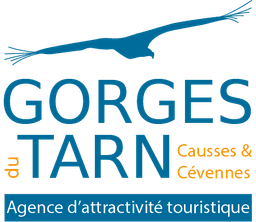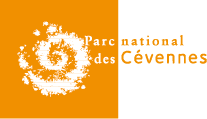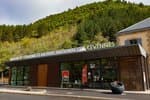
Puecheral
6 points of interest

Troupeau de brebis - © com com Florac Sud Lozère  History
HistoryTranshumant history
“I moved my sheep to summer pastures all the way in the Margeride. I'm from up there myself. When I was a kid, there were many of us in the family, and whenever we saw a transhumant [seasonally migrating] shepherd pass by, my dad would say: one day you'll have to go off with a shepherd... I left and became a transhumant shepherd. My first stopover was Bonperrier. Then we'd eat at L'Hospitalet, and go down to Florac for the night. I moved pastures with 4,000 sheep.”

Draille de la Margeride - © CC Florac Sud Lozère  Pastoralism
PastoralismThe draille de la Margeride
The ascent to Issenges is on the draille de la Margeride. A draille is a path used by herds of goats during the transhumance: moving up to the mountain pastures in June and coming back down again in September.

Le manoir d'Issenges - © CC Florac Sud Lozère  Architecture
ArchitectureThe Manoir d'Issenges
This fortified house, built from 1624 onwards, is an example of a type of rural seigneurial estate inherited from the Middle Ages. The complex consists of three buildings: the main building with its almost square ground plan, and two long and low wings of farm buildings, which together enclose a courtyard open to the gardens to the east. The entrance is via an archway located at the southern corner of the main building. This building must have had four corner turrets, a projecting tower in the centre that contained the spiral staircase, and an entrance topped by a pediment. This fortified look was reinforced by musket slits and a parapet, or at least a brattice over the entrance gates. The turrets have been demolished and the central tower reduced in height. The mullioned windows have been preserved. A stone shows the date of 1624.

Châtaignier en fleur - © Nathalie Thomas  Flora
FloraThe sweet-chestnut grove
The chestnut grove borders the former track from Chadenet to Bédouès. Many other species (oak, ash, hazelnut) have settled in this grove since it stopped being exploited 50 years ago. “Towards Chadenet, trees were cut for the tannins, they were cut before the Great War. My father worked there, bringing the trees down the mountain with oxen. There were four or five of them, each with his pair of oxen, and they brought it all down by the track all the way to Pontèze.”

Chèvre de race alpine - © Olivier Prohin AgricultureThe Gautier goat farm
Yolande and Christian run a small farm where they make farmhouse goat's cheese, a typically Cévenol product. Their herd consists of 60 Alpine dairy goats, and all their milk is processed on-site into farmhouse cheese. From late November to late April, the nanny goats have a break so their little ones can feed!

Château d'Arigès - © com com Florac Sud Lozère  History
HistoryChâteau d’Arigès
This can be seen on your left, in a gap in the forest. It was only a share-cropping farm, whose buildings were in ruins, when the Lord of Issenges bought it in 1658. He lived in it from 1688. This Château, which is no doubt more comfortable than the « maison carrée » (“square house”), was built in a river bend of the Tarn and is surrounded by fertile soils well-suited for crop-growing.
Description
Start above the holiday village “Le Pont du Tarn” (in the Azinières part of Florac) or on the square by the village hall in Bédouès (take the D998 towards Florac, at the crossing turn right towards La Baume, and then turn left at the metal bridge, to pick up the signposted walk). From the car park above the holiday village, join the road (Chemin d’Yssenges) and go uphill to a track. Your path follows the main track, but cuts off one of its hairpin bends. At the next crossing, take the track on the right. At the Col d’Issenges pass, go downhill on the main track on the right, then take a small path on the left to reach Chadenet. In Chadenet, go downhill on the small lane and take the path on the right. During the descent, you leave this to take a small steep path. At its bottom, turn right onto a road that crosses the campsite and continue on the path above the Tarn. If you started at Bédouès, turn left at the metal bridge to cross it, then left again to reach the car park by Bédouès village hall. If not, to get back to the holiday village, continue straight ahead on the road and then on the path to Azinières. Take the road opposite to reach “Le Pont du Tarn”.
- Departure : Either at the Pont du Tarn holiday village or in Bédouès
- Arrival : Either at the Pont du Tarn holiday village or in Bédouès
- Towns crossed : Florac Trois Rivières, Bédouès-Cocurès, and Les Bondons
Forecast
Altimetric profile
Recommandations
Make sure your equipment is appropriate for the day's weather conditions. Remember that the weather changes quickly in the mountains. Take enough water, wear good shoes and put on a hat. Please close all gates and barriers after yourself.
Information desks
Tourism'house and national Parc at Florac
Place de l'ancienne gare, N106, 48400 Florac-trois-rivières
This office is part of the National Park's associated tourist-information network, whose mission is to provide information on, and raise awareness of, the sites and events as well as the rules that must be observed in the National Park's central zone.
On site: exhibitions, video projections, events and shop Open year-round
Transport
- Bus line 261 “Florac – Le Pont de Montvert – Mont Lozère”, every day in July and August
Bus stop: Florac, Place ancienne gare
2km from the trail.
- Bus line 258 “Florac – Sainte-Enimie – Le Rozier”, every day in July and August
- Bus line 251 "Florac – Mende”. Year-round daily service Monday to Saturday
- Bus line 252 “Ispagnac – Florac – Alès”
https://lio.laregion.fr/
Access and parking
From Florac, take the D 998 road, direction Bédouès
Parking :
Calculateur d'itinéraire Lio
Utilisez le calculateur liO pour organiser votre trajet en région Occitanie.
Autres régions
Calculez votre itinéraire en Auvergne Rhône Alpes sur Oùra
Biodiversité autour de l'itinéraire
Source


Report a problem or an error
If you have found an error on this page or if you have noticed any problems during your hike, please report them to us here:

